A Morning Shake Up to the World of China and Beyond
Our Kuqa Grand Hotel lived up to its name. It was centrally located, very nicely furnished and surprisingly sophisticated - and the staff was pleasant and helpful. Beds were comfy, and our spacious room was equipped with TWO comfortable chairs and even a desk. Best of all however - was that we had English speaking CCTV television and bliss - an electric kettle and supplies of coffee and tea! Well, things were certainly looking up. Furthermore, the dinner restaurant and the extensive buffet breakfast comprising both Chinese and western styled food were excellent.
We watched the international CCTV news that morning, shaking our heads in disbelief. Although the footage was understandably heavily slanted toward positive reports on Chinese home affairs, it was interesting to gain a local insight into the country's politics and international affairs. But I'm not sure we really wanted to hear about the depressing world news either...
While the UK was hyperventilating from its shock Brexit referendum outcome, it seemed the rest of the world was in a bewildering state of disarray. Well, perhaps the world had gone completely mad - with continuing bloody fighting in Iraq and Syria, 65 million displaced refugees world wide, a spate of terrorist attacks in Belgium, France and Germany, a disturbing rise in prominence of far right, neo-fascist parties in Europe, and the crazily absurd political rivalry between the two contenders - Hilary Clinton and Donald Trump - for the Presidency of the USA. And that is to say nothing of the intense campaigning of our own Labour and Liberal National Coalition parties for the coming Australian July federal election - not that we heard anything about such a relatively minor world issue on Chinese television....
And all the while, with world wide economic crises looming yet again, China appeared to be powering on despite a significant international and domestic (mind you 6.5% growth is not bad in any person's language) economic downturn, forging relationships through the newly formed Shanghai Cooperative Organisation with Poland, Serbia, Central Asia, India and Pakistan. And with President Putin visiting China at the time, the government was also firming up relationships with Russia with the aim of building a fast railway link between Russia and China, via Mongolia. China was even establishing a closer trading relationship with Bangladesh and Indonesia. Look out America, we thought. And look out the rest of the world... And as for Australia - well, it seemed quite irrelevant.
Bizarre Reasons for Our Interest in Aksu and Kuqa
Abdulrahman the evening before had suggested that we bypass our coming destination of Aksu and continue driving on another 250 kilometers to Bachu, obviously a lot closer to our following destination of Kashgar. Being the sole driver now, and with nearly 800 kilometers of driving ahead of us, he indicated that he may prefer to make the longer of the two trips on the following day. It was however totally up to us, he said.
We actually had wanted to visit Aksu. We were looking forward to visiting the city which was once a major staging post on the old Silk Road trading routes, on a junction of the northern Tarim Basin road and the dangerous route north via the Tian Shan's Muzart Pass to the fertile Ili River Valley. From our readings, there was a lot of history sown up in Aksu.
Furthermore (although less importantly), we had had some memorable, if rather unpleasant, experiences with a tiresome co-passenger on the train from Urumqi to Kashgar some years ago (refer blog entry no. 17, "Keketuohai National Park: "Earth is the Cradle") who, amongst a raft of unco-operative acts, woke us up at 3.00 am, rudely crashing and banging around our cabin in preparation for his disembarkation at Aksu at 4.00 am. We often laughed about our thoughtless friend, and wondered what the city of Aksu would be like and thought it might fill in a gap in our Silk Road travel experiences in Xinjiang. At the very least it would make a good travelogue entry....
While waiting in the foyer of our lovely hotel, admiring a very handsome world globe which was curiously weighted so that it always spun back to China, we decided that if it wasn't too much of an inconvenience that we would like to stay in Aksu for the night. Well, it wasn't to be. A beaming Abdulrahman greeted us, and within the first minute informed that he had changed our itinerary and hotel booking for Bachu. "It is so much more interesting than Aksu" he explained. "You will meet lots more Uyghur people and be able to see real life in Xinjiang".
We shrugged our shoulders, knowing that we were as always, totally out of control of our destiny. And after all, it was Abdulrahman doing all the driving. And perhaps Bachu would be interesting in its own right too.
If there was rather an unusual reason for wanting to visit Aksu, then apart from the obvious "it was a city on our road to Kashgar", there was an even more bizarre reason for our interest in Kuqa. Some years before, we had the fortune of making friends with an amazing wild Red Fox "HarryBella" who became part of our family at our home of Crowdy Head on the mid north coast of New South Wales, Australia. To cut a very long story short, HarryBella found a partner "Arabella" and together they bore four cubs, two of whom they brought to our house - and of course we came to know and love. We named them after cities in Xinjiang; one was "Korla" and the other "Kuqa". Both cubs were simply adorable but completely different in type and character. While the female Korla was tall, slender and reserved, the male cub Kuqa was fat, greedy and short legged - and always in trouble with his parents for being far too gregarious with us humans.
HarryBella and his family moved away from our village following setting of traps on a tourist walkway by an unwise local ranger who succeeded only in trapping our friends' poor dog, who thankfully was saved from being badly hurt. We know that foxes are clever enough to move from any source of "fear scent" smell following animal danger, and we are certain that Harry and his family were safely away. But we often wonder about the family, and especially fat greedy little Kuqa. Sadly, not all animals are equal on this earth.
We had visited Korla some years ago on our journey from the Taklamakan Desert to Urumqi but we often wondered about whether we would ever visit the city of Kuqa...
An Insight Into the Kuqa Region
Kuqa is a Silk Road oasis town at the foot of the Tian Shan on the northern edge of the Taklamakan Desert of the southern Tarim Basin. Once an independent Buddhist kingdom, it was an important staging post on the north-west route of the Silk Road, strategically located on the crossroads of the great cultures of India, Persia, Thrace (a historical area in south-west Europe and now split between Bulgaria, Greece and Turkey), Greece and China, and was at the time the most important kingdom in the region. The Kuqa region is also renowned for its music which has been strongly influenced by its proximity to Central Asia.
Today, Kuqa is probably best known for its huge oil and gas based resources; its natural gas reserves being estimated at two trillion cubic meters and its oil reserves of over 700 million tons (accounting for 90% of all gas, and 70% of all oil in the Tarim Basin). Kuqa is also rich in coal and rock salt deposits.
Kuqa, being an oasis town is well known also for its fine agriculture, including intensively irrigated grain and cotton - and it is especially famed for its fruit; notably pears, grapes, figs, and melons. The city is home also to a sizeable manufacturing industry including cutlery, carpets, handicrafts and other household necessities.
Today, Kuqa is part of the Aksu Prefecture and a major administrative seat within the county. Contemporary Kucha is now mostly Han Chinese dominated with the city being divided into Muslim and Chinese sectors. The city currently boasts a population of 406,000 people.
Morning at the Markets and a Beautiful Face in Kuqa
With an eight hour drive ahead of us, we had limited time that morning in Kuqa. Abdulrahman suggested that we visit the local markets which sounded like a fine idea to us, allowing us to at least get a bit of a feel for the city and more importantly, to stock up on some bottle water, flat breads and hopefully some tomatoes and fruit. I knew by then that my much longed for cheese was not going to be a reality...
Despite being our first visit, Kuqa was like home to us. Over the years we had travelled extensively through south-west Xinjiang and it was for us very soothing to be back on familiar grounds; intense white light, scorching desert heat, donkey carts, frenetic motor bike traffic, street stalls and markets, fresh melons and dried fruits - and not to forget the rather laid back bucolic atmosphere so typical of Xinjiang desert cities.
Although we did only a very short trip through the outskirts of Kuqa that morning, what we did see appeared to be a very pleasant city, with clean, wide tree lined streets and a very nice feel. Only the high rise apartment blocks were testament to the newer dwellers - the Han Chinese population.
The market area was typical of Muslim styled architecture, with two storeyed shops and the familiar ever so dusty streets and the ubiquitous street sweepers. Typical of many markets in Asia, many of the stalls were not fully open when we arrived at 10.00 am. Butchers were only just beginning to hang up their fat tailed sheep carcasses and cuts of lamb, and the fruit stalls were only just starting to be packed. Fortunately for us, the bread stall was open, selling freshly baked flat breads of very different sizes and shapes. It always amazed us, that it was quite acceptable for buyers to finger through the bread layers, feeling out which was the softest and freshest pieces. Abdulrahman, with the help of the bakers picked out what we guessed were the best pieces (I am not sure how as they all looked the same to us) for his supplies.
Surprisingly, the same friendly service did not extend to us foreigners. The sour looking middle aged Uyghur bread sellers glared at us when we attempted to pick out our bread and then just ignored us. It was only due to a lovely young Uyghur woman who had just turned up, that we were able to be served at all. Possibly the daughter of the couple, she was extremely friendly and although she spoke no English, went to no end of trouble to assist us.
This attractive young woman was indeed a lovely package. Dressed in typical, colourful Uyghur patterned clothing and a simple headscarf, she possessed a beautiful face and a truly wonderful smile. In no time, she had selected the bread she thought we would like - and we were very appreciative.
Over our years of travels in Xinjiang, we had found the local people to be extremely warm, welcoming and helpful. But as in all societies, we had found the odd miserable stall holder. Perhaps they had former bad experiences with foreigners?
We bought some bananas and tomatoes, and as we did not need to shop for any more supplies decided to give our bead hunting for our housekeeper Hazel a miss for the Kuqa markets. We were soon back in Abdulrahman's car and heading to Bachu.
Dust Storms Along the Fringe of the Taklamakan Desert
Our journey from Kuqa to Aksu, and then onto Bachu took us along the northern border of the great Taklamakan Desert bordered by the Kunlun Mountains to the south, the Pamir and Tian Shan to the west and north, and the Gobi Desert to the east.
The Taklamakan is the world's second largest shifting sand desert of which approximately 85% comprises migrating sand dunes. It has an area of 337,000 square kilometers (making it slightly smaller than the country of Germany) and is 1,000 kilometers in length and 400 kilometers in width. Due to its proximity to the frigid air masses of Siberia, the Taklamakan suffers extremes of temperatures with winter lows sometimes well below -20C. Conversely summer maximums can exceed 40C. Rainfall varies from an exceedingly low 10 mm per year in the east to a meagre 38 mm in the far west.
The Taklamakan over the centuries has earned a justifiably ferocious reputation as being one of the most deadly deserts in the world. It is thought that the name may be Uyghur in origin with the ominous local meaning of "you go in but you never come out"....
The Taklamakan Desert is "old stomping grounds for us". In 2011, we travelled with Abdulrahman and Sabir right through the centre of the desert on the Cross Taklamakan Desert Highway (Refer travelogue "Secret Threads of the Old SiIlk Road - Turkmenistan, Iran, Pakistan and Far West China"). Although we found the desert fascinating and hauntingly beautiful, it still held a mystical and eerie feeling for us. My blog describes our night's stay in the tiny oil mining shanty town of Tazhong, about half way along the Highway:
"The dust storm blew ferociously all night, cruelly slamming sand laden winds against our guest room windows. As the storm wailed and moaned, I laid awake thinking of the long lost souls of the Taklamakan. Like (well known British author and travel writer) Colin Thubron, you could go quite mad imagining it was the eerie howling of the legendary Taklamakan ghost women who supposedly seduced men from their tents, enticing them to search endlessly through the unforgiving desert; never to be seen again. .....Perhaps reality is indeed fragile in this strange and fearsome place?"
Just outside of Kuqa we drove through flood irrigated, verdant fields of newly emerged sunflowers and maize. On our right hand side orchards of stone fruit and loquats flourished. Surrounding the irrigated agricultural land however, extensive arid desert land was clear evidence that Kuqa only existed because, like every other settlement in this region, it was an oasis city totally dependent on its artesian water supplies. Just beyond were the fantastic white pyramidical biscuity outcrops of the Tian Shan.
During our journey to Aksu, the surrounding landscape turned to gravel and then true sandy desert. On the horizon hazy mountains overlapped in shades of dusky pinks, reds, greys and sage. Occasional pink flowering Tamarisk species and clumping grass were the only forms of vegetation that could endure this harsh environment.
In sandier areas, mazes of short stabilisation "fences" of straw type grass, dominated the landscape. We had witnessed this type of stabilisation during our journey through the Taklamakan and were most impressed yet again with the massive scale of China's anti-desertification measures and tree re-generation projects. In past years the desert had expanded dramatically in some areas, the shifting sands enveloping huge areas of farmland and villages. The stabilisation projects however have proved to be very successful, and in more recent times we understand that a lot of the sand encroachment has been reversed, with far fewer dust storms and damage to local villages.
The 250 kilometers of dead flat, straight highway from Kuqa to Aksu was monotonous. There was no vegetation on the parched dun coloured desert clay and in fact no apparent life at all. A sand storm was brewing, making visibility difficult and almost impossible to take decent photographs. It must have been hard on Abdulrahman too. Just keeping awake would have been difficult. Frequent road signs depicting a human head with a "Zzzzzz" printed across them indicated that this area must be very dangerous for drivers in accidentally falling asleep. We kept asking Abdulrahman if he would like some toffees but he declined. It must have been a "Ramadan On" day for him.
In the mid afternoon we finally turned off the highway and headed toward Aksu. "Were we now going to stay in Aksu for the night?" we wondered. Well no, we were just stopping for fuel... But we did at least catch a glimpse of Aksu, a city of huge apartment blocks and sky scrapers; a pretty boring looking exterior. Perhaps we were lucky to be driving on to Bachu? But of course we never did know...
A Long Drive To Bachu
The landscape for the remainder of our long journey was much the same, except the desert had turned into a clogging cloud of dust, forming a seamless brown-yellow fusion between land and sky.
There was no agriculture at all, just the occasional rocky outcrop displaying evidence of ancient violent geological twisting and tilting; weathered layering resembling overlapping slices of fossilised bread.
Dense aerial webs of power lines signalled a factory or an oil refinery ahead. Forlorn, grit covered villages housed endless blocks of simple tin clad dormitories, presumably accommodation for the oil workers. It reminded us very much of the oil shanty town of Tazhong on the Cross Taklamakan Desert Highway. We just hoped that the work conditions were better than those we had witnessed on that trip.
The dust storm had lifted by the time we arrived in Bachu in the late afternoon. As we drove through the wide, sealed roads of the town an exhausted Abdulrahman exhaled in disbelief. "I cannot believe this is Bachu!" he exclaimed. Far from the humble yet interesting Uyghur town described to us, a very new Bachu was jam packed with high rise buildings, mostly looking like apartments or business accommodation with wide boulevards and expensive looking cars. There were certainly no donkey carts or markets to be seen.
Abdulrahman explained that although he had not visited Bachu for some five years, he could not believe how it had changed so completely. This he said, was becoming common in China with its mind blowing mass development and almost "pop up" style cities, even in regions as remote as Xinjiang. It appeared that this old town, once an important staging post on the Silk Road was now a booming oil city. We were not to fully appreciate Abdulrahman's bewilderment at such rapid development - until that is, we ventured further south to the once very familiar environs of the Karakoram Highway from Kashgar to Tashkorgan. And then we really understood what he was saying....
Our Huyan Guoji International hotel in Bachu was a very pleasant surprise. A new, and extremely large complex, the hotel was beautifully furnished with a large modern restaurant and a staggering number of individual banquet rooms. There was no doubting this was a businessmens' hotel, most probably those representing the numerous oil refineries in the region. There were certainly no foreigners nor even any local tourists
A very helpful reception person led us through enormously wide and very long corridors, and up to our very plush room. Although it reminded me slightly of a hospital, it certainly was a lovely hotel. And after a long day, we were more than happy to sit and rest and enjoy our flat bread and tomatoes. We even managed to buy some beer from the surprised looking bar staff. Thank goodness for our knowledge of the words " bing pyjou!"
That evening we tried to order a meal from the restaurant. No-one spoke any English at all and despite our translated requests on our iPad, it caused great confusion and consternation. From what we gathered, it seemed that the hotel was not serving meals that evening. Instead a charming young woman who spoke just a little English came to our rescue, pointing upstairs and then escorting us to one of the very luxurious banquet rooms. It was most bizarre - just the two of us seated at a huge round table surrounded with beautiful furnishings and elaborately decorated pottery.
Thankfully the extensive menu came with photographs and we successfully ordered a wonderful braised whole duck meal, vegetables and rice - and even a bottle of red wine. Perhaps Bachu was not such a bad choice after all?
A Beautiful Face In Kucha
Sunday, June 26, 2016
 Bachu County, Xinjiang Uygur, China
Bachu County, Xinjiang Uygur, China
Other Entries
-
12Skirting The Tsaagan Gol & A Lonely Bulbal
Jun 1016 days prior Tsengel, Mongoliaphoto_camera35videocam 0comment 2
Tsengel, Mongoliaphoto_camera35videocam 0comment 2 -
13A Lunar Voyage To Khovd
Jun 1214 days prior Khovd, Mongoliaphoto_camera19videocam 0comment 1
Khovd, Mongoliaphoto_camera19videocam 0comment 1 -
14To Bulgan & A Humble But Memorable Lunch
Jun 1313 days prior Bulgan Village, Mongoliaphoto_camera24videocam 0comment 4
Bulgan Village, Mongoliaphoto_camera24videocam 0comment 4 -
15A Truckies' Inn & An Onerous Border Crossing
Jun 1412 days prior Koktokay Xinjiang, Chinaphoto_camera23videocam 0comment 0
Koktokay Xinjiang, Chinaphoto_camera23videocam 0comment 0 -
16An Insight Into Xinjiang Uyghur Autonomous Region
Jun 1412 days prior Koktokay, Chinaphoto_camera4videocam 0comment 2
Koktokay, Chinaphoto_camera4videocam 0comment 2 -
17Keketuohai National Park: "Earth is the Cradle..."
Jun 1511 days prior Fuyun City, Chinaphoto_camera24videocam 0comment 3
Fuyun City, Chinaphoto_camera24videocam 0comment 3 -
18To Kanas Lake: A Startling Diversity of Landscapes
Jun 1610 days prior Kanas Lake, Chinaphoto_camera38videocam 0comment 3
Kanas Lake, Chinaphoto_camera38videocam 0comment 3 -
19Kanas: "Rich, Beautiful, Mysterious, Enigmatic"
Jun 179 days prior Kanas Lake, Chinaphoto_camera27videocam 0comment 0
Kanas Lake, Chinaphoto_camera27videocam 0comment 0 -
20The Charm, Poetry & Romance of Lake Kanas
Jun 188 days prior Hemu Village, Chinaphoto_camera15videocam 0comment 0
Hemu Village, Chinaphoto_camera15videocam 0comment 0 -
21A Torch Blown Sheep's Head OR Hell in Hemu!
Jun 197 days prior Hemu, Chinaphoto_camera17videocam 0comment 3
Hemu, Chinaphoto_camera17videocam 0comment 3 -
22Early Morning in Hemu; A Deadly Storm Near Buerjin
Jun 197 days prior Burqin, Chinaphoto_camera10videocam 0comment 0
Burqin, Chinaphoto_camera10videocam 0comment 0 -
23To Karamay - Dinosaurs, Ghosts and Derricks
Jun 206 days prior Karamay, Chinaphoto_camera29videocam 0comment 0
Karamay, Chinaphoto_camera29videocam 0comment 0 -
24To Boertala: An Inept Teller, A Lovely Policeman
Jun 215 days prior Boertala, Chinaphoto_camera19videocam 0comment 3
Boertala, Chinaphoto_camera19videocam 0comment 3 -
25To Yining: Stones, Soup & The Tears of Lovers.
Jun 224 days prior Yining County, Chinaphoto_camera36videocam 0comment 3
Yining County, Chinaphoto_camera36videocam 0comment 3 -
26Yining to Narat: From Dejection to Perfection....
Jun 233 days prior Narat, Chinaphoto_camera30videocam 0comment 0
Narat, Chinaphoto_camera30videocam 0comment 0 -
27Grasslands of the Sky: Narat & Bayinbulak
Jun 242 days prior Bayinbulak, Chinaphoto_camera42videocam 0comment 0
Bayinbulak, Chinaphoto_camera42videocam 0comment 0 -
28Across the Tian Shan: Tears of a Buddhist Princess
Jun 251 day prior Kuqa, Chinaphoto_camera36videocam 0comment 0
Kuqa, Chinaphoto_camera36videocam 0comment 0 -
29A Beautiful Face In Kucha
Jun 26 Bachu County, Chinaphoto_camera28videocam 0comment 0
Bachu County, Chinaphoto_camera28videocam 0comment 0 -
30Back Home in Exotic, Eclectic Kashgar
Jun 271 day later Kashgar, Chinaphoto_camera27videocam 0comment 2
Kashgar, Chinaphoto_camera27videocam 0comment 2 -
31Last Tango in Kashgar
Jun 282 days later Kashgar, Chinaphoto_camera50videocam 0comment 0
Kashgar, Chinaphoto_camera50videocam 0comment 0 -
32Trials n Tribulations: A Tough Trip to Tashkorgan
Jun 304 days later Tashkorgan, Chinaphoto_camera43videocam 0comment 0
Tashkorgan, Chinaphoto_camera43videocam 0comment 0 -
33How We Nearly Didn't Get to Pakistan.....
Jul 015 days later Passu, Pakistanphoto_camera46videocam 0comment 0
Passu, Pakistanphoto_camera46videocam 0comment 0 -
34Historical Time Line of Key Events in Pakistan
Jul 015 days later Passu, Pakistanphoto_camera16videocam 0comment 1
Passu, Pakistanphoto_camera16videocam 0comment 1 -
35Shimshal: Special Privilege OR Reckless Adventure?
Jul 026 days later Shimshal, Pakistanphoto_camera61videocam 0comment 1
Shimshal, Pakistanphoto_camera61videocam 0comment 1 -
36To Karimabad OR Revelations of A Royal Guide....
Jul 037 days later Duikar, Pakistanphoto_camera49videocam 0comment 0
Duikar, Pakistanphoto_camera49videocam 0comment 0 -
37A Not So Spiritual Experience & "Amarican Dog"
Jul 048 days later Duikar, Pakistanphoto_camera38videocam 0comment 0
Duikar, Pakistanphoto_camera38videocam 0comment 0 -
38Insha'Allah Flight to Islamabad & Sarah Steele
Jul 059 days later Islamabad, Pakistanphoto_camera27videocam 0comment 0
Islamabad, Pakistanphoto_camera27videocam 0comment 0 -
39A Cancelled Flight - But It's All Part of Travel..
Jul 0610 days later Islamabad, Pakistanphoto_camera8videocam 0comment 0
Islamabad, Pakistanphoto_camera8videocam 0comment 0 -
40A Scenic Flight Over the Karakorams to China
Jul 0610 days later Urumqi, Chinaphoto_camera10videocam 0comment 0
Urumqi, Chinaphoto_camera10videocam 0comment 0 -
41A Short Stay in Shanghai
Jul 0711 days later Shanghai, Chinaphoto_camera8videocam 0comment 0
Shanghai, Chinaphoto_camera8videocam 0comment 0 -
42Post Script - Life After Our Improbable Journey
Jul 1014 days later Crowdy Head, Australiaphoto_camera10videocam 0comment 2
Crowdy Head, Australiaphoto_camera10videocam 0comment 2

 Bachu County, Xinjiang Uygur, China
Bachu County, Xinjiang Uygur, China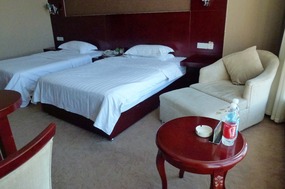
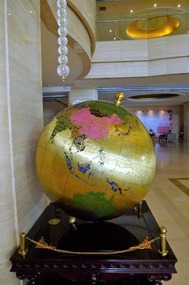
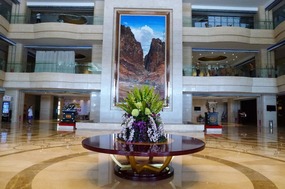
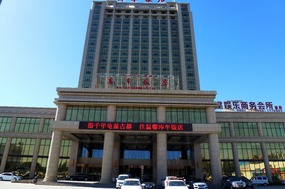
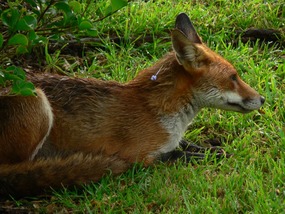
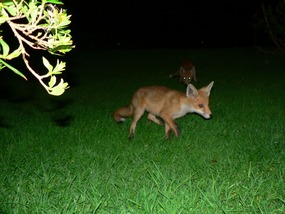
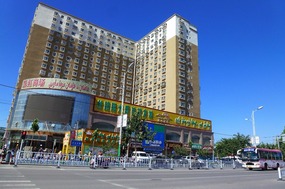
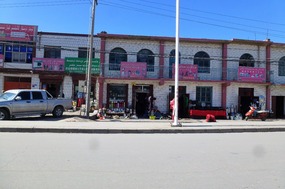
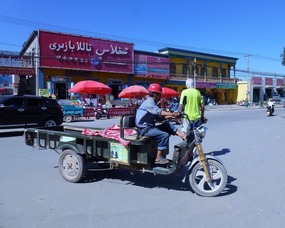
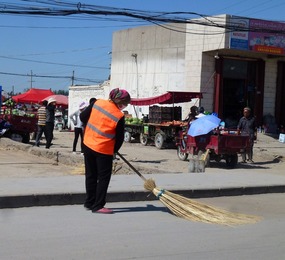
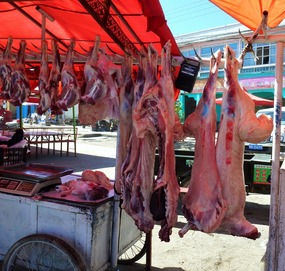
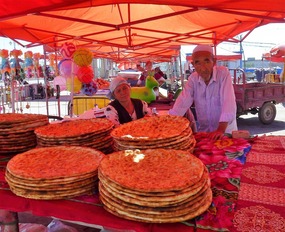
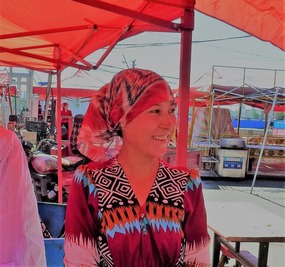
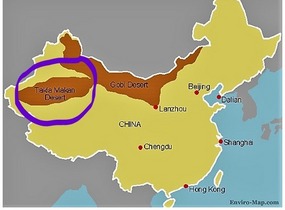
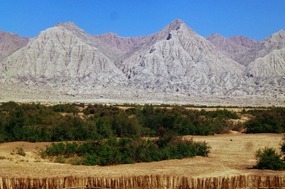
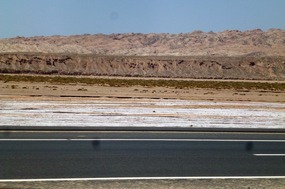
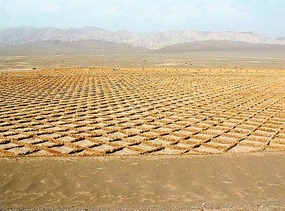
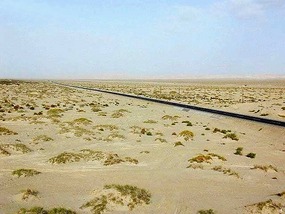
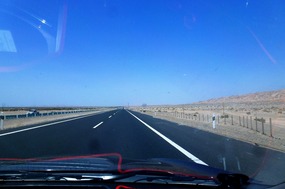
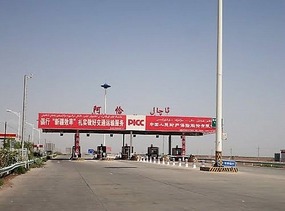

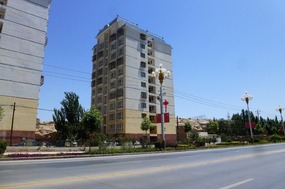
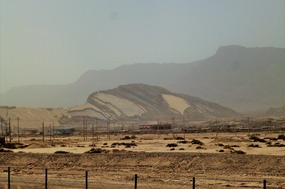
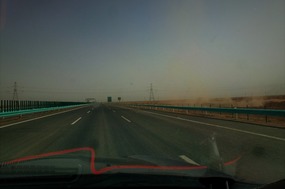
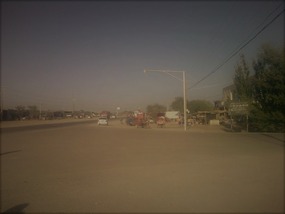
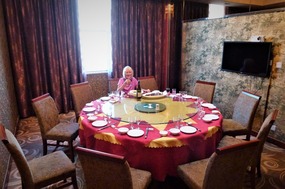
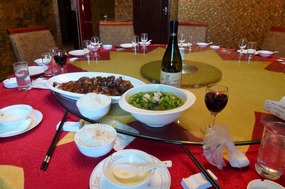
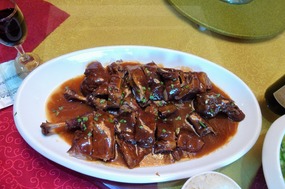




2025-05-23